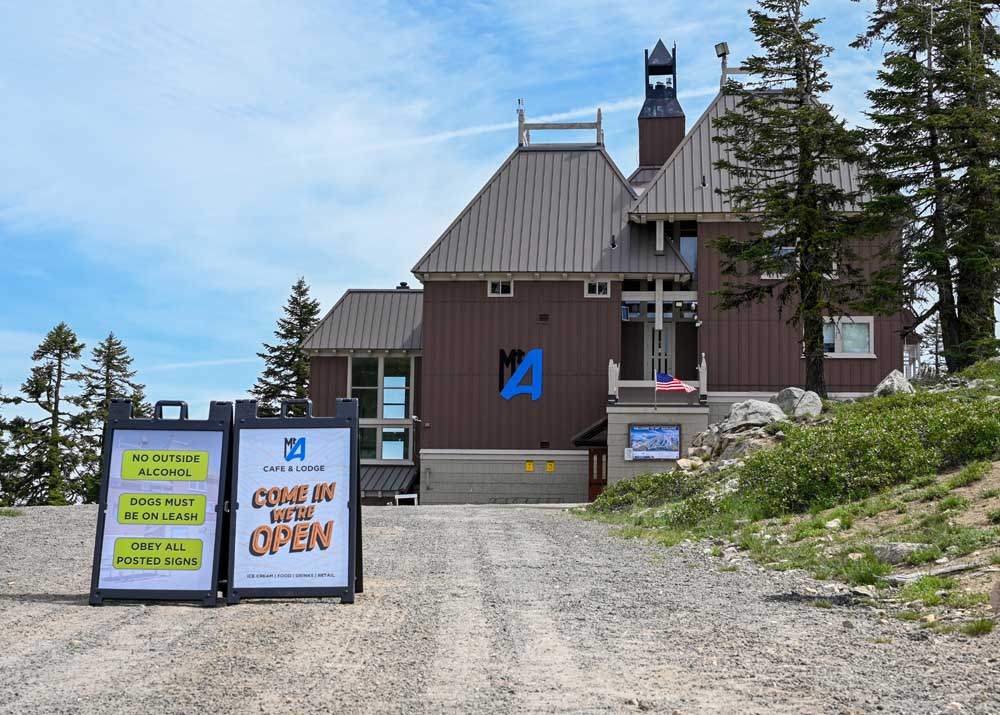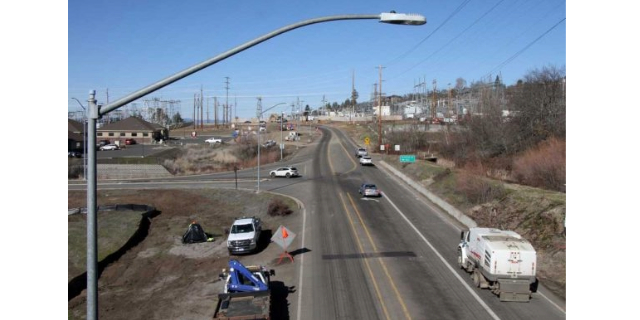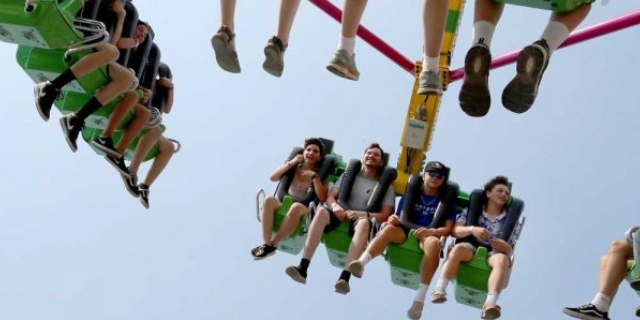‘We are there to help people’: Mt. Ashland launches Ski Patrol host program
Published 6:00 am Friday, February 16, 2024

- Honor Rikard, 10, talks about snowboarding with Ski Patrol Host Ken Kempner at Mt. Ashland Ski Area on Rikard's first day of boarding at the First Act "magic carpet." Rikard came with his class from Ruch Outdoor Community School.
A Ski Patrol Host program has been launched at Mt. Ashland Ski Area for “retired” patrollers who no longer want to handle difficult tasks like rescue work and other difficult tasks, but want to stay involved with a sport they love.
Trending
“The program is for older patrollers who are alumni, injured patrollers who need to sit out for a while, folks on leave and those without all their credentials yet,” said Ken Kempner, an alumni patroller who started the effort.
“Mostly, what convinced us that we needed greater presence on the hill was, the more snow we got last year, the more comments we got,” Kempner said. They included questions like: Why are runs closed? Why isn’t the bowl open? Why couldn’t skiers use a certain area?
Kempner and Ski Patrol Director Kacy Carlson had discussed the idea for several years. With last season’s bountiful snowfalls, patrollers were often busy digging things out.
Trending
“While the patrol is out on the slopes trying to get things open, the hosts can provide that point of contact to answer questions,” Carlson said.
Mt. Ashland Ski Patrol is a mostly volunteer organization, with a few paid positions. It is affiliated with the National Ski Patrol. Kempner said he doesn’t know of a host program anywhere else in the country.
“The first line of patrollers are responding to accidents,” he said. “We need more personnel on the hill … to help pick up little kids, help them putting on their skis, serving as linebackers to block for folks who fell down.”
A patch reading “PATROL HOST” has been created to go over the cross on the back of the vest that patrollers wear. There are half a dozen hosts.
Patroller Jeremy Rothenberg had open heart surgery in December and is staying off his skis until March. But he spent Feb. 3 — his first day as a patrol host — going back and forth between the lodge and the patrol room, where he did “anything that needed to be done,” Rothenberg said.
“I was helping out with injuries that came in and giving the appropriate support,” said Rothenberg, who has been on patrol five years.
At other times, he talked with the public and assisted guests and patrollers. Once Rothenberg feels he is skiing solidly, he will return to regular patrol, he said.
There are a variety of tasks that hosts will help with, including:
• Putting out signs and bamboo sticks to warn of dangers, and getting the mountain ready to go for the day as part of the trail crew.
• Staying with rescued skiers and boarders in the patrol room while they await medical personnel, allowing regular patrollers to return to the mountain.
• Staying at critical points where skiers and riders must be warned of merging traffic or a need to slow down.
Patrollers’ most technical and dangerous work involves aiding riders or skiers who have become stranded or need medical assistance. That’s not necessarily a good job for patrollers who are baby boomers, Kempner said.
Injured guests are loaded into a sled, which must be worked down the mountain to spots where they can be towed to the patrol room by snowmobiles. Low-angle rescues with ropes are conducted to remove skiers and boarders who get into a spot where they don’t feel safe going any further. This sometimes happens on rocks in the bowl’s third chute.
Hosts also won’t help with avalanche mitigation work but could assist if an avalanche occurred.
Kempner, now 76, had been with Mt. Ashland Ski Patrol for 17 years before reaching the alumni status recognized by the National Ski Patrol Association. He served as president of the local patrol.
Kempner not only skis but rides a snowboard. When he’s on the board and in his patrol uniform, he gets lots of questions from younger riders (some of whom don’t know boarders could be on patrol). He takes the opportunity when riding the chair lifts with single riders to talk about the patrol and the work they do.
Certification of a patroller takes about a year with on-mountain training and classroom time, including a 10-week summer program. There are both written and physical tests.
“We want to get some of our retired patrollers in the family and keep that individual alive and well,” Carlson said. “We have patrollers who were on the mountain for 30 years. Their institutional value is important to keep.”
Abigail Coombs, Mt. Ashland marketing specialist, said the new patrol program brings a sense of community. “I feel like sometimes there is a negative thing with Ski Patrol since they are the ones who enforce.”
She added: “Just to have those specific patrollers there and smiling and waving, or if you are having some issues and could use a little pointer, having that patroller usually adds an awesome aspect for some guests. The host program is like a bridge between this (mountain) community and the patrol. It provides a good aspect for togetherness.”
Kempner said, “We want to do a better job of explaining to people that we are not police. We are there to help people and ensure safety, as well. We are all medically trained. Any policing we do will help keep people safe.”
The annual Bavarian Night, a benefit for the Ski Patrol, will take place Saturday, Feb. 17. There will be night skiing, a torch-light parade, music, prize drawings and fireworks.









